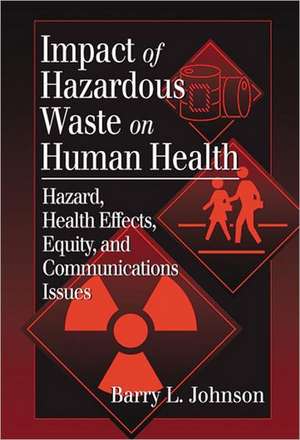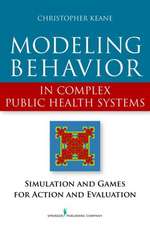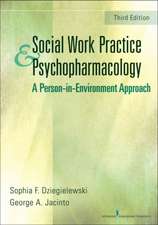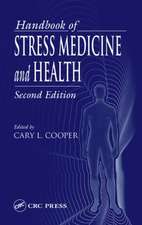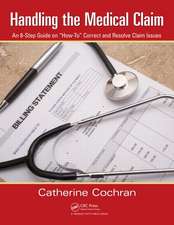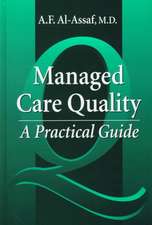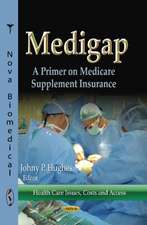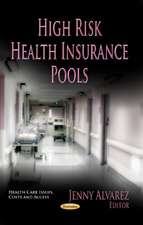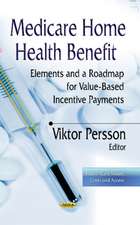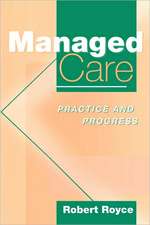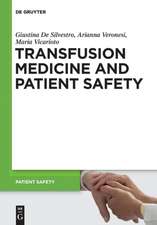Impact of Hazardous Waste on Human Health
Autor Barry L. Johnsonen Limba Engleză Hardback – 15 apr 1999
The author addresses six themes: hazardous waste issues must be more vigorously examined, site remediation is critical, risk management must extend beyond waste site clean up, disease prevention must be a priority, interagency partnership is mandatory, and the best technology must be applied.
Johnson also considers the pros and cons of the Comprehensive Environmental Response, Compensation, and Liability Act (CERCLA) also known as the "Superfund." His years of experience with this law, and countless other issues related to hazardous waste, make Impact of Hazardous Waste on Human Health an important and positive contribution.
Preț: 1125.09 lei
Preț vechi: 1372.06 lei
-18% Nou
Puncte Express: 1688
Preț estimativ în valută:
215.31€ • 233.80$ • 180.86£
215.31€ • 233.80$ • 180.86£
Carte tipărită la comandă
Livrare economică 22 aprilie-06 mai
Preluare comenzi: 021 569.72.76
Specificații
ISBN-13: 9781566704472
ISBN-10: 1566704472
Pagini: 408
Ilustrații: 49 black & white tables
Dimensiuni: 178 x 254 mm
Greutate: 0.91 kg
Ediția:1
Editura: CRC Press
Colecția CRC Press
Locul publicării:Boca Raton, United States
ISBN-10: 1566704472
Pagini: 408
Ilustrații: 49 black & white tables
Dimensiuni: 178 x 254 mm
Greutate: 0.91 kg
Ediția:1
Editura: CRC Press
Colecția CRC Press
Locul publicării:Boca Raton, United States
Public țintă
ProfessionalRecenzii
"Impact of Hazardous Waste on Human Health will be an essential resource for professionals who assist in situations where health problems are investigated, but its usefulness extends far beyond this community. It is a comprehensive resource for students and others hoping to understand how toxic chemicals have affected health...Because it is well organized and clearly written, I would recommend Impact of Hazardous Waste on Human Health to anyone who wants to know how this very serious problem is being addressed."-Doris Cellarius, Sierra Club Community Health Committee
"This scholarly and comprehensive work by one of the nation's experts in hazardous chemical waste provides clear and authoritative guidance for answering the question 'To what extent do hazardous wastes deleteriously impact human health?'...This detailed analysis is a must for students of environmental health and for all who are concerned about issues of toxic chemical wastes. It is clearly written, scholarly and comprehensive. I recommend it highly."-Philip J. Landrigan, M.D., M.Sc., Mount Sinai School of Medicine
Promo Copy
"This scholarly and comprehensive work by one of the nation's experts in hazardous chemical waste provides clear and authoritative guidance for answering the question 'To what extent do hazardous wastes deleteriously impact human health?'...This detailed analysis is a must for students of environmental health and for all who are concerned about issues of toxic chemical wastes. It is clearly written, scholarly and comprehensive. I recommend it highly."-Philip J. Landrigan, M.D., M.Sc., Mount Sinai School of Medicine
Promo Copy
Notă biografică
Barry L. Johnson (Emory University, Atlanta, Georgia, USA) (Author)
Cuprins
Nature and Extent of Hazardous WastePublic Health AssessmentExposure AssessmentToxicology of CERCLA Hazardous SubstancesHuman Helath StudiesWorkers' Health and SafetyHealth PromotionRisk CommunicationEnvironmental EquityComparative Risk Assessment
Descriere
Written by a public health official Impact of Hazardous Waste on Human Health provides the unique perspective available only from an insider. The author addresses why: hazardous waste issues must be more vigorously examined, site remediation is critical, risk management must extend beyond waste site clean up, disease prevention must be a priority, interagency partnership is mandatory, and the best technology must be applied. He provides guidance on protecting site cleanup workers, communicating with community groups, and responding to environmental justice issues. The book covers public health policy, the abilities of the EPA, and the effectiveness of CERCLA.
